My Reading Life: The Pandemic Books
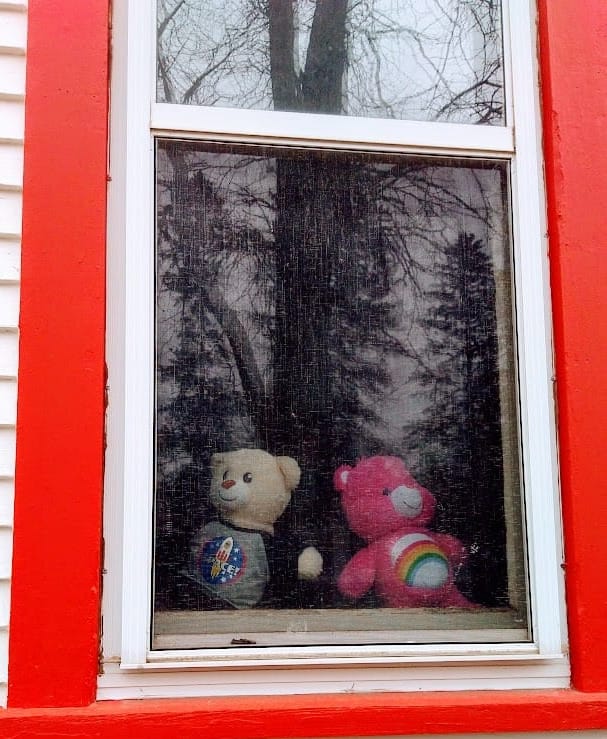
When the world first shut down in March of 2020, I couldn't stop checking Facebook. I was desperate to see how other people were making sense of it. I must not have gotten what I needed out of those endless Facebook refreshes, because I don't remember anything that I read.
I've always found better solidarity in books, anyway. But the pandemic was too new, and the books didn't exist yet.
By early 2021, those books began appearing. I read Amanda Gorman's Call Us What We Carry (poetry), Jennifer Haupt's Alone Together (anthology), and Louise Erdrich's The Sentence (novel). In them, I found echoes of my thoughts and experiences of the outside world during that time – the anxiety over the spiking infection rates and new variants, the outrage and despair over the violence against people of color, the frustration over people who denied the reality of COVID and the strain in relationships that never expected to be put through a test like this (not all of mine survived it.)
But I found very little that spoke to my own personal pandemic prison – being trapped at home with two children under age three. As someone who desperately needs "alone time" to recharge, this was the worst kind of "aloneness" – isolated but constantly "on" as Mom. I carried this undercurrent of resentment as I read my way through my "pandemic books." And the resentment went something like this: "At least YOU had the time/privacy/brain space to write about this."
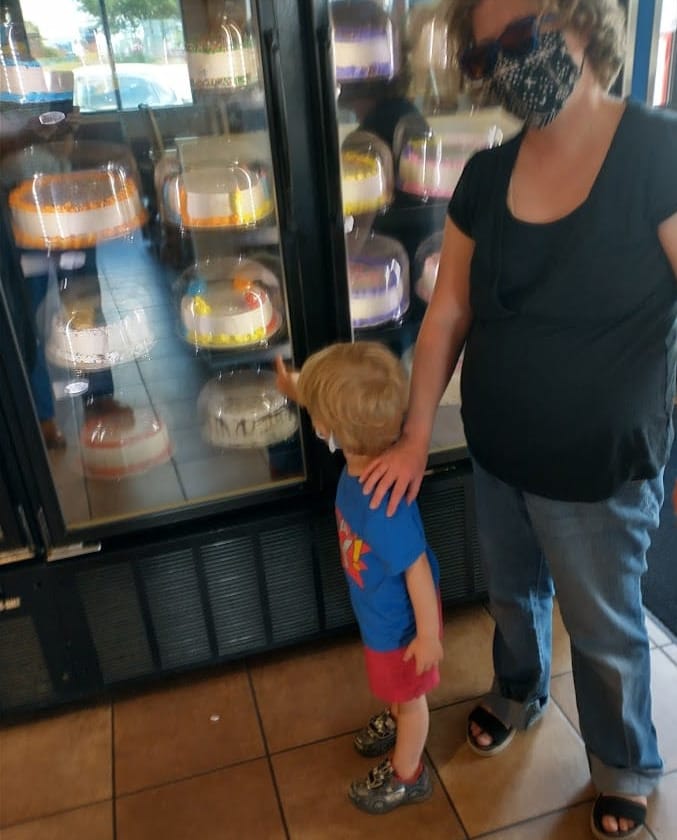
Because I wanted to write about what it was like. The pregnancy that developed almost exclusively within my four walls. Those first months of my second son's life, when seeing human faces masked was the norm. The freedom of summer and birthday parties held outdoors. The way my stomach churned when I got that first positive result on a home COVID test, while a frozen pizza burned in the oven. And while I sometimes managed to scribble a few pages in my journal, pull together a blog post, or add a couple hundred words to the short-story-turned-novella I was writing, it never felt like enough. I was living through what I knew were pivotal years in history, and I was a writer, and I should have been documenting it. But the days just kept passing, filled with breastfeeding and meltdowns and diaper changes and crying into the frying pan while I made dinner with a baby on my hip. From those two years, I can count on one hand the times when both kids were under my care and I felt like it was really working. Where no one was screaming (myself included) and I was being the mother I wanted to be. Calm, engaged, responsive, present, with happy, cooperative, blossoming children.
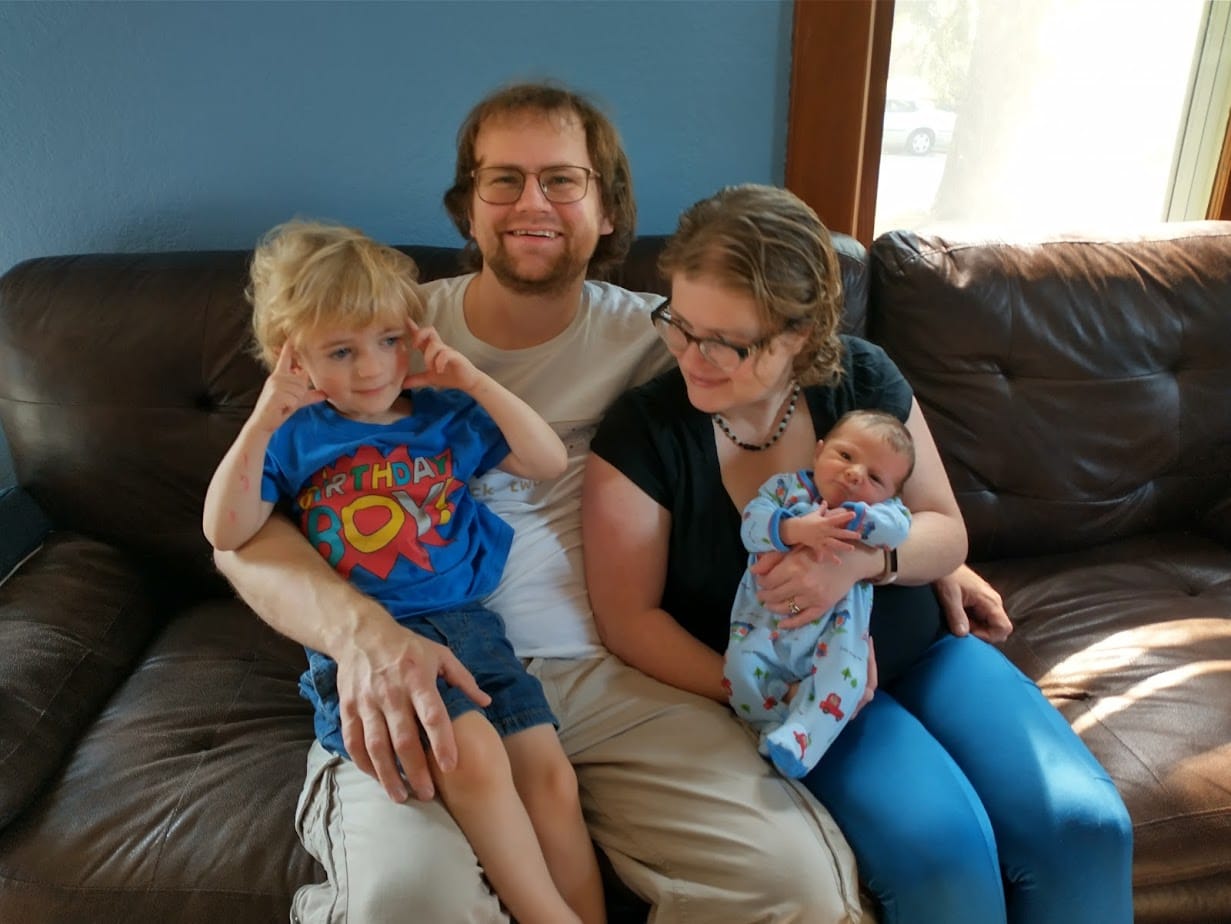
I knew why I couldn't find the books I needed, of course. Because all the mothers of young children were as desperate and worn out as I was, barely able to string two thoughts together in their minds, let alone a poem or a story or a book. I read other parenting memoirs instead, marveling at the anxiety involved in having a newborn exposed to a cold, and comparing it to the terror of my baby catching a virus we didn't even understand yet.
Then I found The Light Room by Kate Zambreno. Zambreno had two young children at home during the pandemic, including a baby who was born in the same month as my youngest. Finally, I would find the echo of my reality I had been longing for.
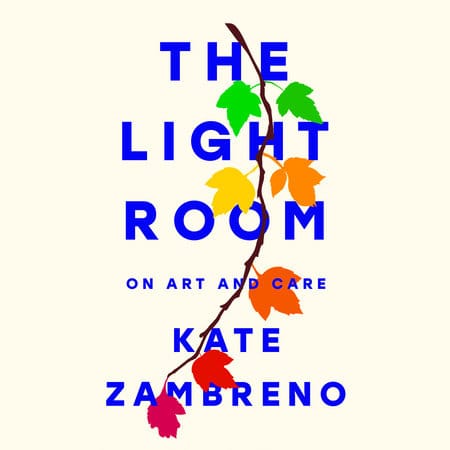
It wasn't the healing balm I imagined it would be. Zambreno and her husband lived in a small apartment during the pandemic and both taught online college courses while having their children home full-time. Zambreno was also attempting to "homeschool" her older child through preschool. She was stealing moments in the middle of the night to read and jotting down notes that would eventually become her book about the experience.
Reading it, I felt like I had accomplished absolutely nothing during the pandemic. Like I had wasted entirely too much time sleeping.
I also didn't feel like The Light Room made sufficient "meaning" of the experience for me, meaning I was still searching for, and still AM searching for. But I can't really blame Zambreno for that – she wrote the book while still in the thick of mothering, working, and coping with the pandemic, and there's just not a lot of mental space left after all of that to find the meaning in it.
I'm still not sure I've found meaning in it, that I understand the impact it had on my formative years as a mother or my children's formative years as human beings. It has come up frequently in conversations with my best friend, who also had two young children at home during the pandemic while she worked full-time. We talk about how, in the thick of it, we were just surviving and trying to delay our kids from catching the virus for as long as possible, hopefully until a vaccine was available for them. We didn't succeed – my kids got COVID in November of 2021, and hers got it a few months later. But we told ourselves at least we had gotten them out of infancy unscathed by the virus.
I have another friend with young children who says whenever she thinks of those years, she just "puts them back in the box in her mind" and closes it. Our children are STILL young, although older than they were, and we still don't have a lot of brain space to process what those two years meant. It was so easy to fall back into "normal life" once our kids developed some immunity or protection (from catching the virus, getting the vaccine, or both) that continuing on as if those two years never happened sometimes feels like the most viable response.
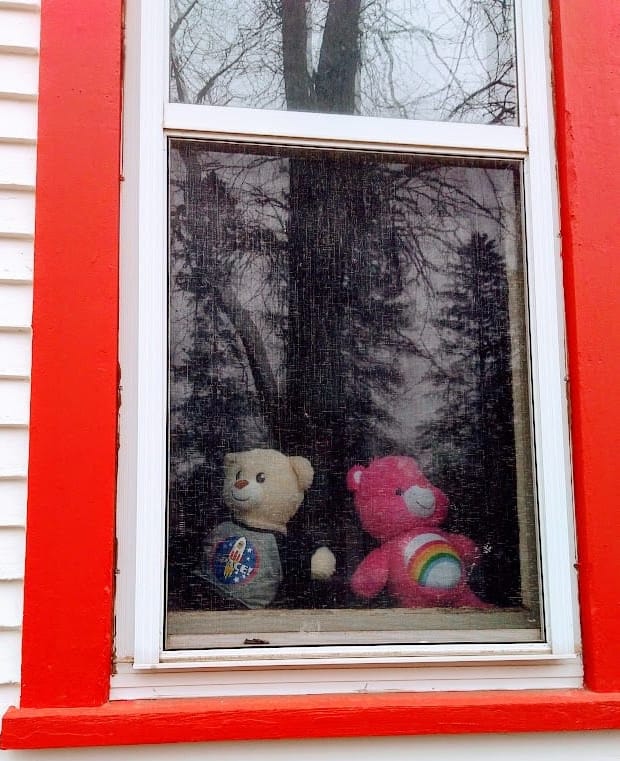
But they DID happen. And as I've gotten older, I've realized that often we don't recognize something as a trauma until we've gotten ourselves out of it. Then, it's the thought of going back to that time that reveals to us the strain we were under.
Early in the pandemic, I remember crying as I climbed the stairs to the office where my husband was working, weighted down by the baby in my belly and the dawning realization that this wasn't going to be over in "a couple weeks" as everyone originally said. Still, I tried to find the silver lining in all the "at-home" time. I wrote in my journal that "someday I would miss" this time of simplicity and lowered expectations.
I don't.
Instead, I feel like I'm going to start crawling the walls anytime a snowstorm or illness traps us at home for more than a day or two. Growing up, I loved the coziness of snow days and my kids still see them as a treat. But if they go on for more than two days, I start to panic with a reaction that's disproportionate to the threat or actual hardship of being home for a few days with my kids.
Because attached to those two or three days of cancelled school are the hundreds of days that came before them, wearing down all my reserves, and probably stealing from the future reserves I would need for normal bumps in the road like snow days.
Since I was first pregnant and then the mother of young children who couldn't get the vaccine while the rest of the world started returning to "normal," we were careful. We were so careful. We put all of our "risk eggs" in the preschool basket, sending my three-year-old to a half-day program that followed masking and social distancing protocols. I needed that for my sanity, a few hours a day when only one child demanded my attention and emotional energy. But it also terrified me, and made me feel guilty and weak. Why were we taking this preschool risk, when we didn't really "need" to? I wasn't working outside the home and we didn't "need" the childcare the way "working" parents did. (Working in quotation marks because we know ALL parents are working, almost non-stop, whether for pay or not.)
So outside of preschool, we did almost nothing. We didn't eat in restaurants, we picked library books up at the curb, we went to doctor's appointments and sent one parent ahead to scout the "masking situation" before we brought our kids into any public place, and we celebrated all the holidays at home. I was frustrated by the people who were careless and forced parents of young, unvaccinated children to bear all the responsibility for their family's safety. But that's what we did. We bore all the responsibility, and sometimes we disagreed about it, and alienated people, and ended up with our kids catching the virus in the end, anyway.
I don't know if I could live that way again. I tell myself, on the one hand, that if we did it once, we can do it again. But I don't know if my mental health will be able to take it a second time. Except, in a global pandemic, mental health comes second to physical health, which we all learned the hard way.
I don't regret any of the decisions our family made during that time. But I'm a writer, and it's my instinct to find the meaning in my life story. And this is such a big part of it, not just for me, but for my kids, for the country, for the world. Yet it's been four years, almost two thousand words in this post, several filled journals, so many conversations, and I still haven't been able to find the meaning in it. Except, maybe, that it showed me more than anything else which of the people in my life were really in my corner, and how much my marriage could take. (We just celebrated our twelfth anniversary.)
If you've managed to make better sense of it than this, I would love to hear your insights.